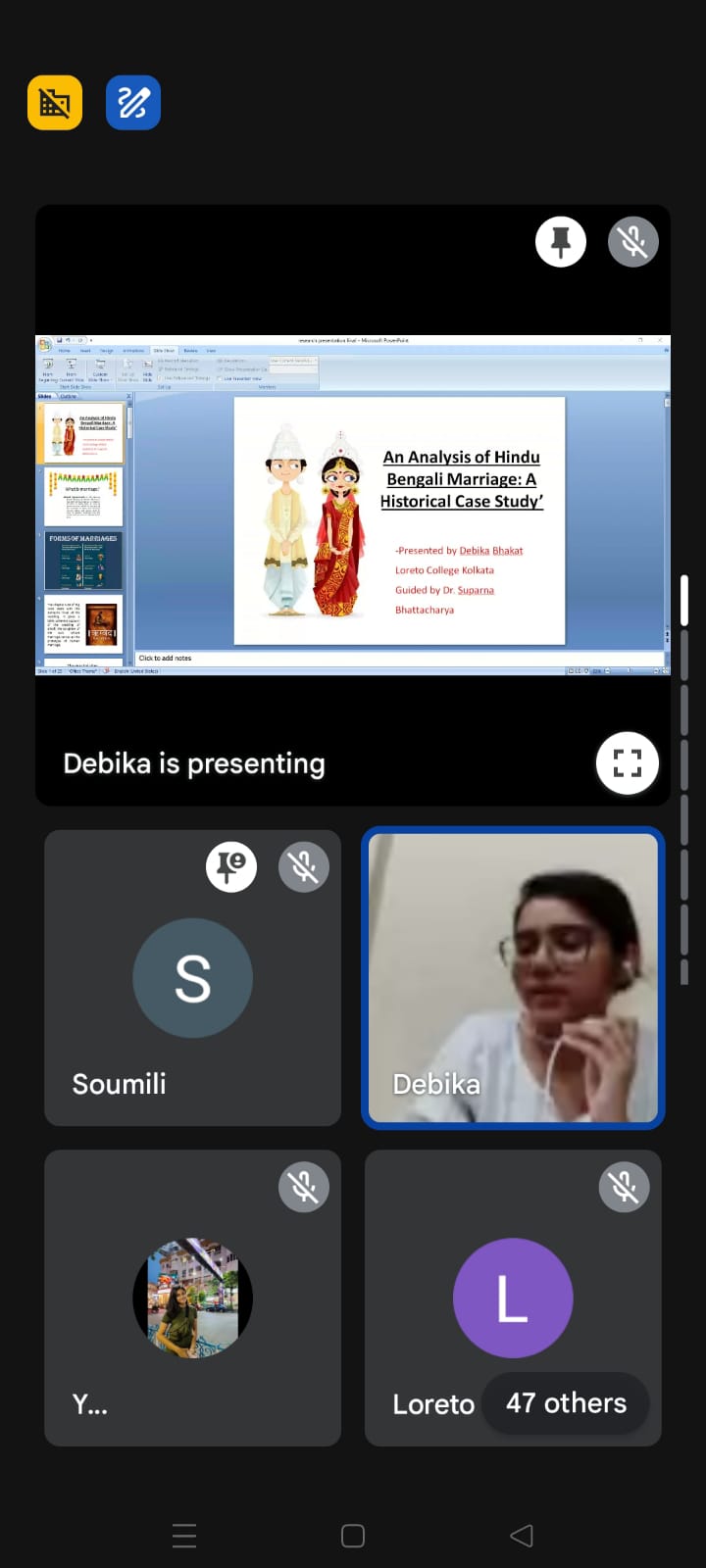Research Cell Student Paper Presentations - History
On June 18, 2024, the Research Cell of Loreto College, Kolkata organised a set of student paper presentations, featuring three research papers from the Department of History. The studies were conducted under the guidance of Dr. Suparna Bhattacharya, Associate Professor, Department of History.
The first research group, comprising Ahana Sen and Sudeshna Sarkar (Semester VI), delivered a paper titled “In the Vanguard of Freedom: Unveiling the Women Revolutionaries in Bengal (1905–1947).” Their research was centred on the challenges faced by women in advocating for their political rights, and they analysed how the subjugation of women catalysed the emergence of feminist movements and ultimately paved the way for contemporary feminism in India. They also spoke about the role of female prostitutes, especially those operating in the Lal Bazar area of Calcutta (now Kolkata), and their financial support to the freedom struggle. Accounts of Bina Das, Savitri Devi, and “prison narratives” were highlighted during the presentation.
The second presentation was delivered by Soumili Das (Semester VI). Her paper titled “The Institution of Caste: Its Evolution, Social Context, Reforms and Political Significance” contended that caste, its complexities, and its evolution from the Vedic to the Late Vedic periods, elucidate how the institution transformed from being loosely defined in the former to becoming more clearly delineated in the latter. Furthermore, she discussed how the Brahmanical Hindu Tradition, Buddhism, and Islam played critical roles in shaping the concept of caste during the late ancient and medieval periods. Notably, the formal registration of caste in contemporary times through mechanisms such as the Census further solidified and reinforced the rigid structure of the Indian caste system.
The third presentation was delivered by Debika Bhakat (Semester VI). The title of her paper was “An Analysis of Hindu Bengali Marriages: A Historical Case Study.” Her paper explored the definition of marriage and delved into its earliest mention in the Rig Veda. It examined the rituals, material aspects, and religious significance associated with Bengali marriage ceremonies, emphasising intricate details such as the symbolic importance of Shakha Pola in signifying married status for women. Furthermore, the paper discussed two case studies involving individuals in distinct marital situations: a single, separated woman in her forties and a married man in his mid-thirties.
The papers were followed by an interactive session during which the presenters convincingly addressed a number of audience queries. Overall, the three research studies proved to be original and noteworthy contributions to the discipline of History.

 ANNOUNCEMENTS
ANNOUNCEMENTS

 ANNOUNCEMENTS
ANNOUNCEMENTS
